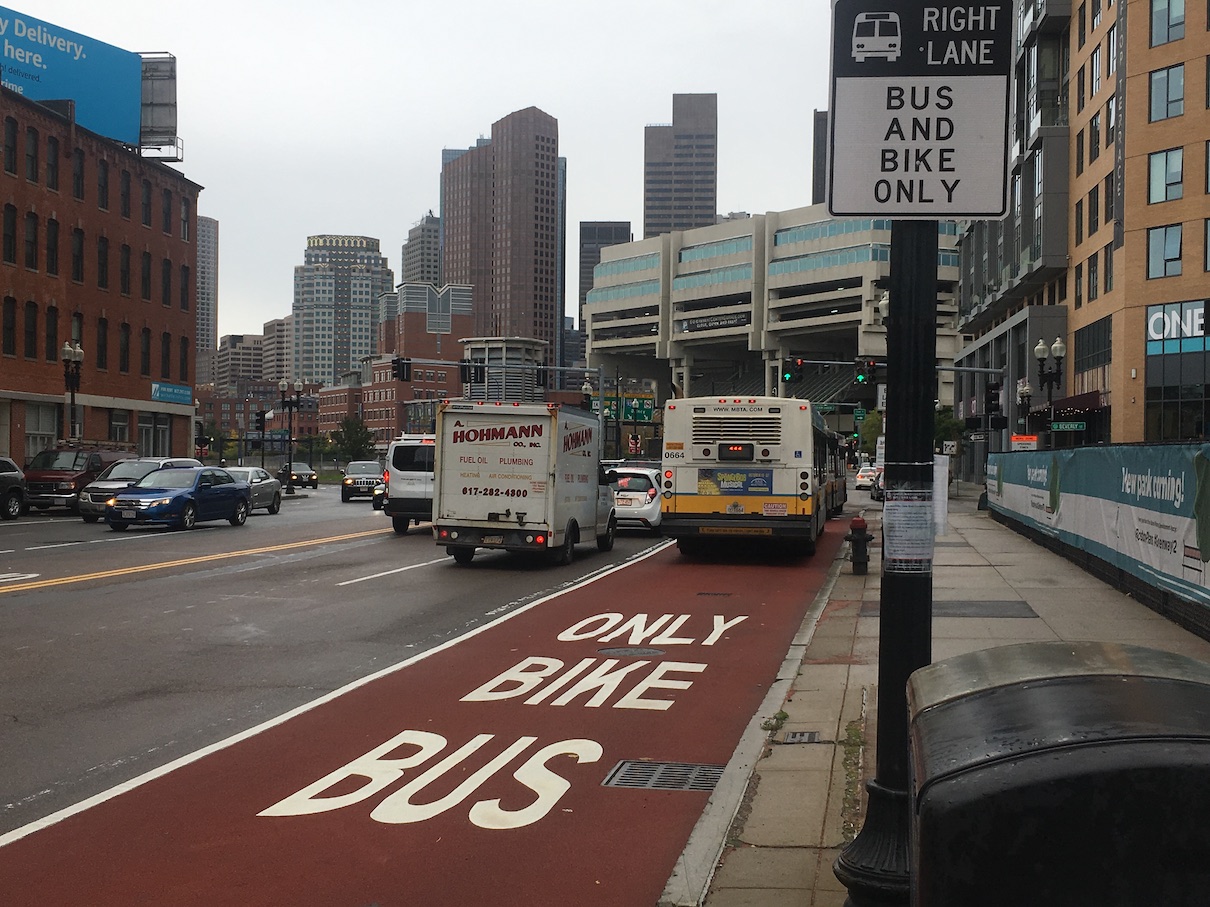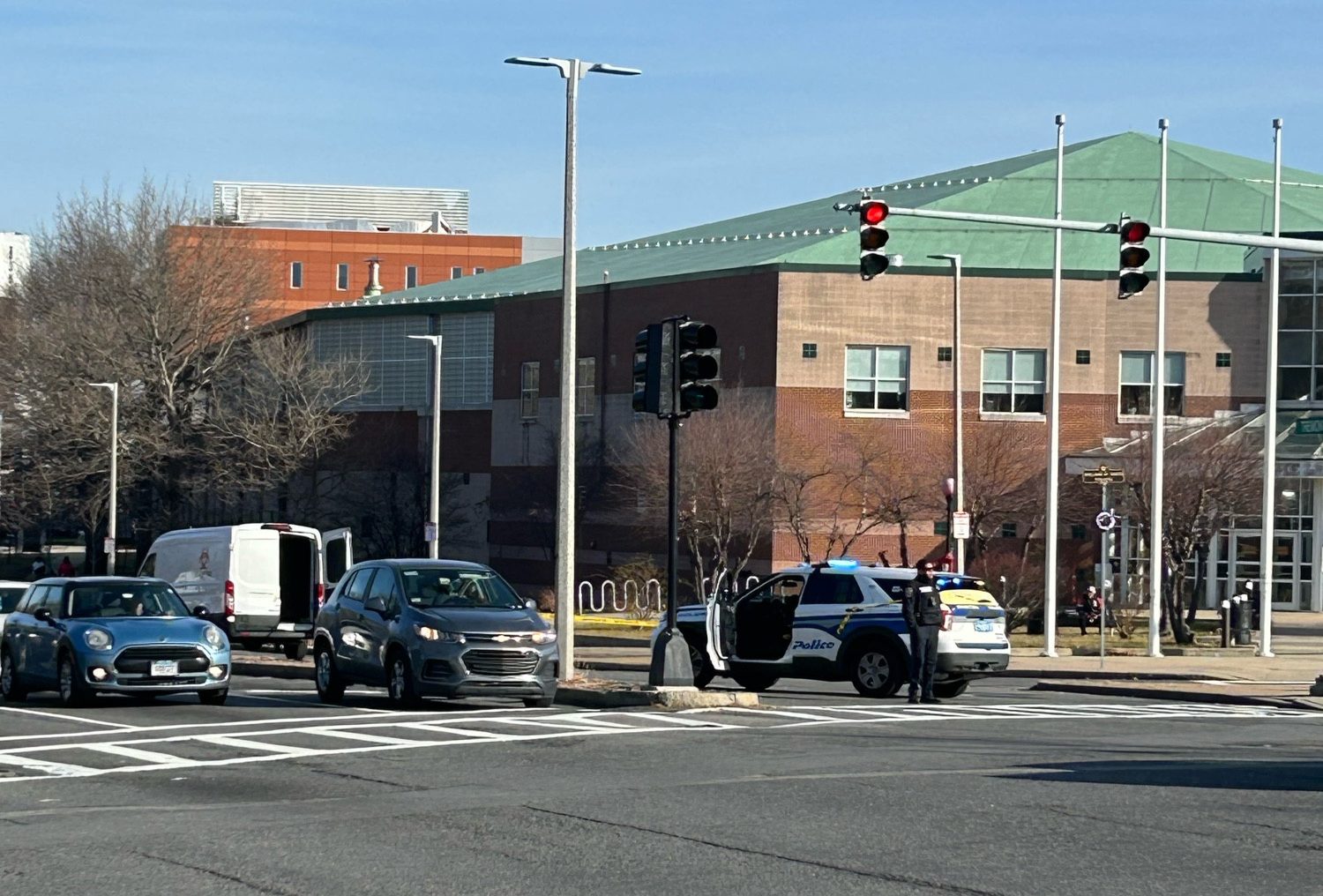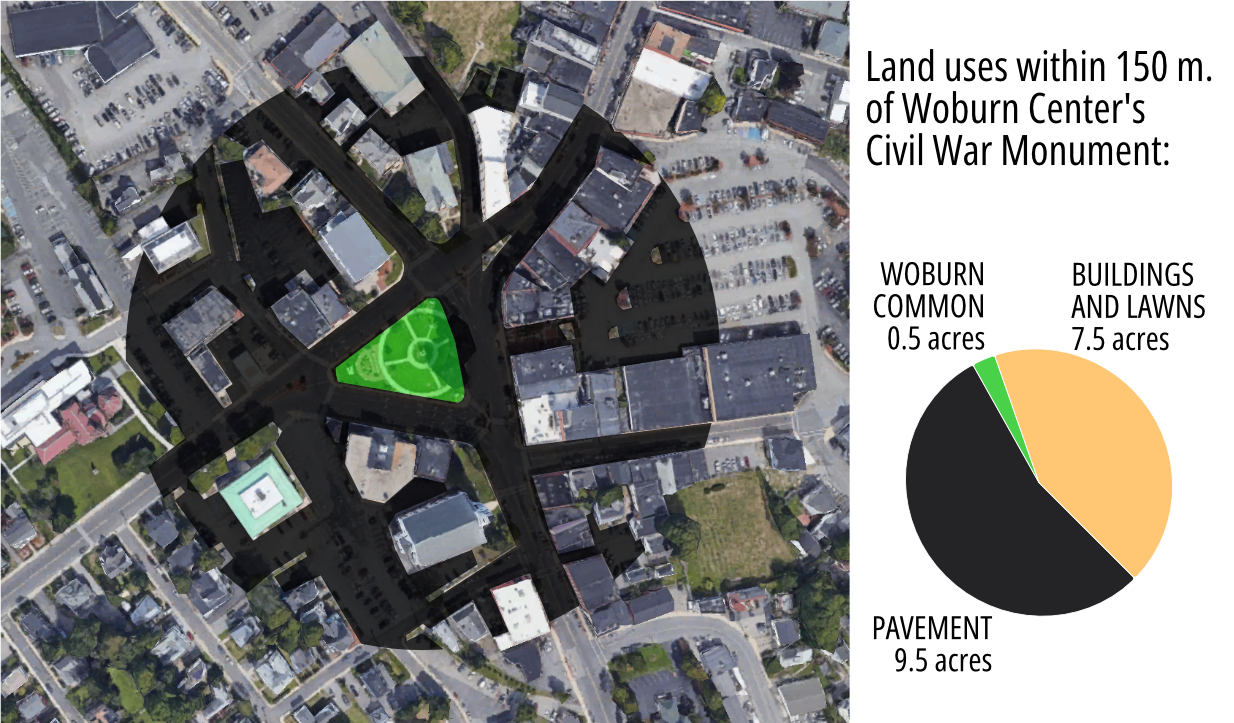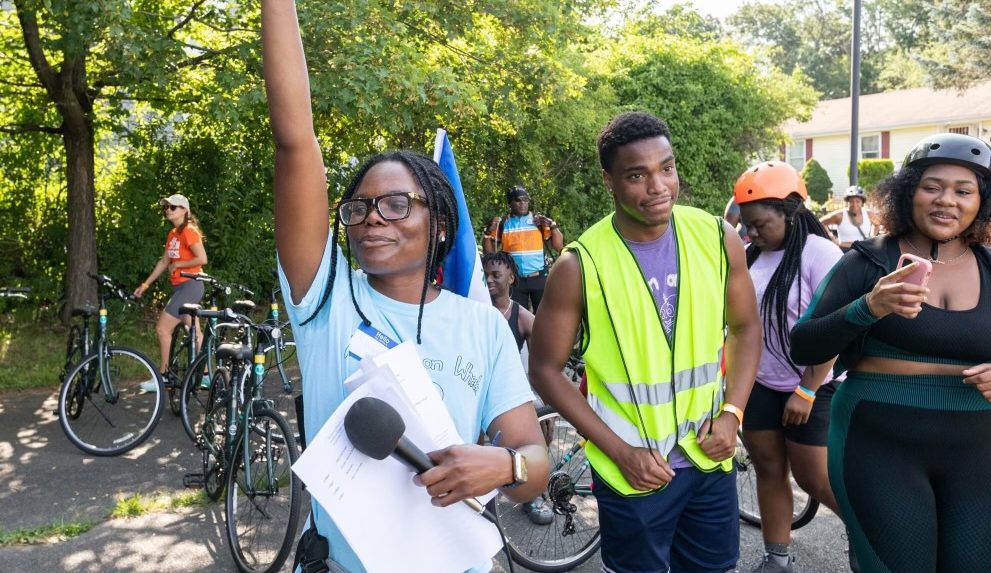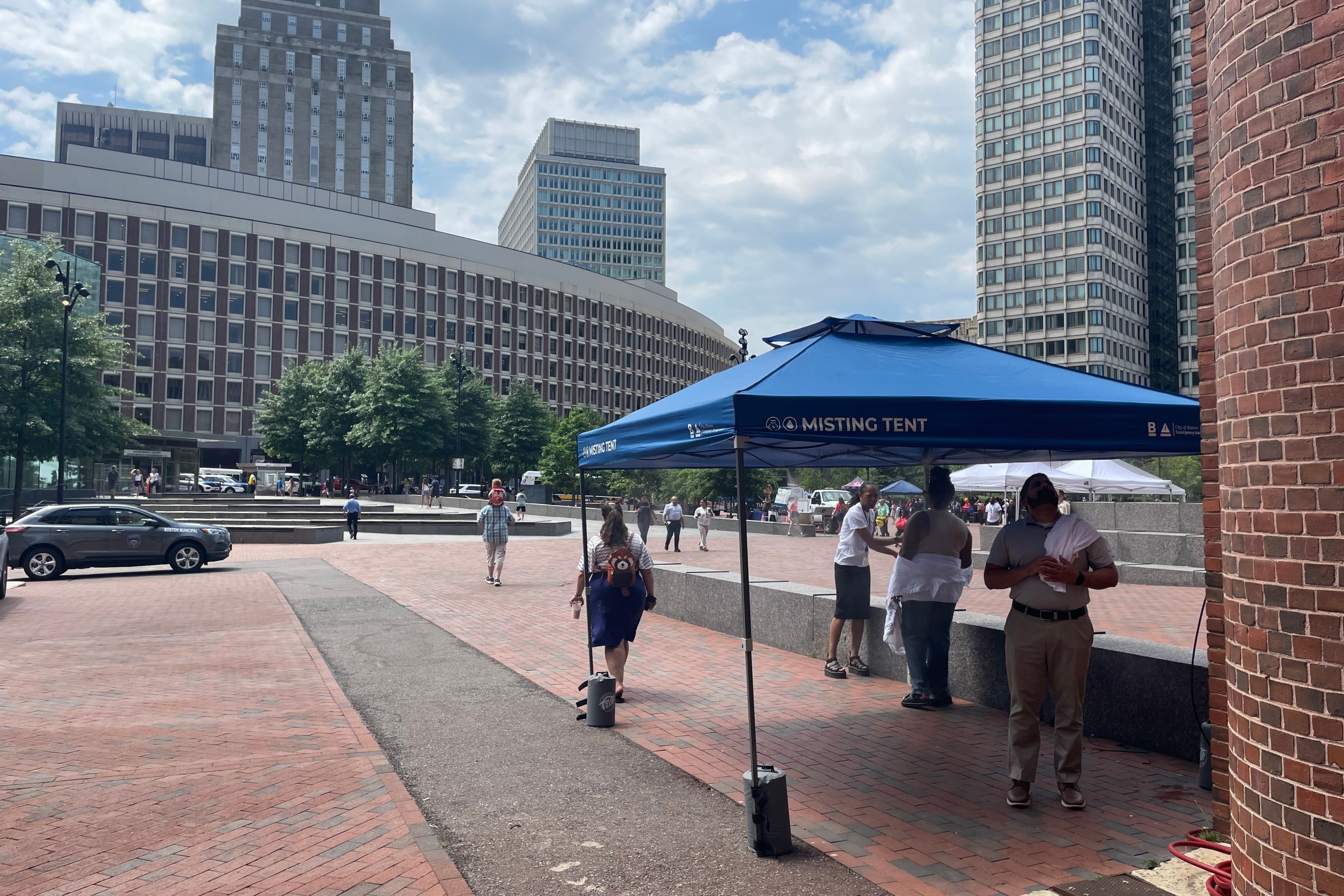A short new bus lane in Boston's North End is providing some relief to bus riders heading downtown from Charlestown and Chelsea, but the relief will be short-lived as construction on the new North Washington Street Bridge enters a new phase that will constrain a key link on the same bus routes through 2022.
The new bus lane spans about four blocks from Causeway Street towards Haymarket Station, and benefits several high-ridership MBTA bus routes, including the 111 to Chelsea and the 92 and 93 buses to Charlestown and Sullivan Square.
At the same time, though, workers are preparing to replace the North Washington Street Bridge, which carries those same bus routes over the Charles River.
When it's complete in 2023, the new bridge will include its own dedicated bus lane that will connect to the city's new facility, as well as separated bike lanes and wider sidewalks.
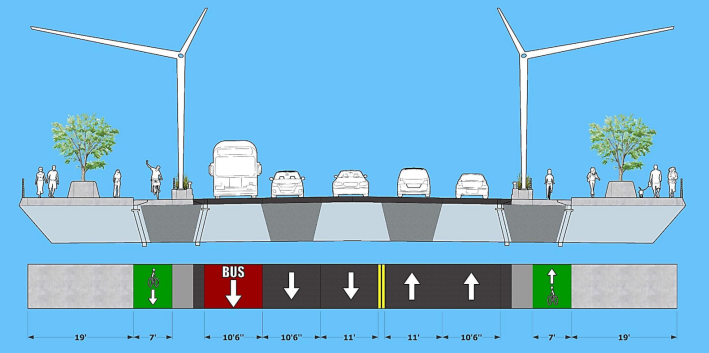
But in the meantime, the construction project will reduce traffic on North Washington Street to only three lanes – two inbound, and one outbound, plus a sidewalk for pedestrians – for nearly three years.
The bridge project is about to enter its most disruptive phase. Later this fall, contractors will shunt traffic to a new, temporary bridge, in order to demolish the old bridge and begin building its replacement.
In an emailed statement, MassDOT spokesperson Jacquelyn Goddard wrote that "due to constraints on the width of the temporary bridge and the need for construction logistics, MassDOT is unable to accommodate a bus-only lane during construction operations."
However, Goddard also reported that the state would station police at key intersections at either end of the bridge to help buses make it through the construction zone.
The final stage of construction, scheduled to last from fall 2022 until winter 2023, will restore four lanes of mixed traffic to the bridge while contractors put the finishing touches on the inbound bus lane, bike lane, and sidewalks.
